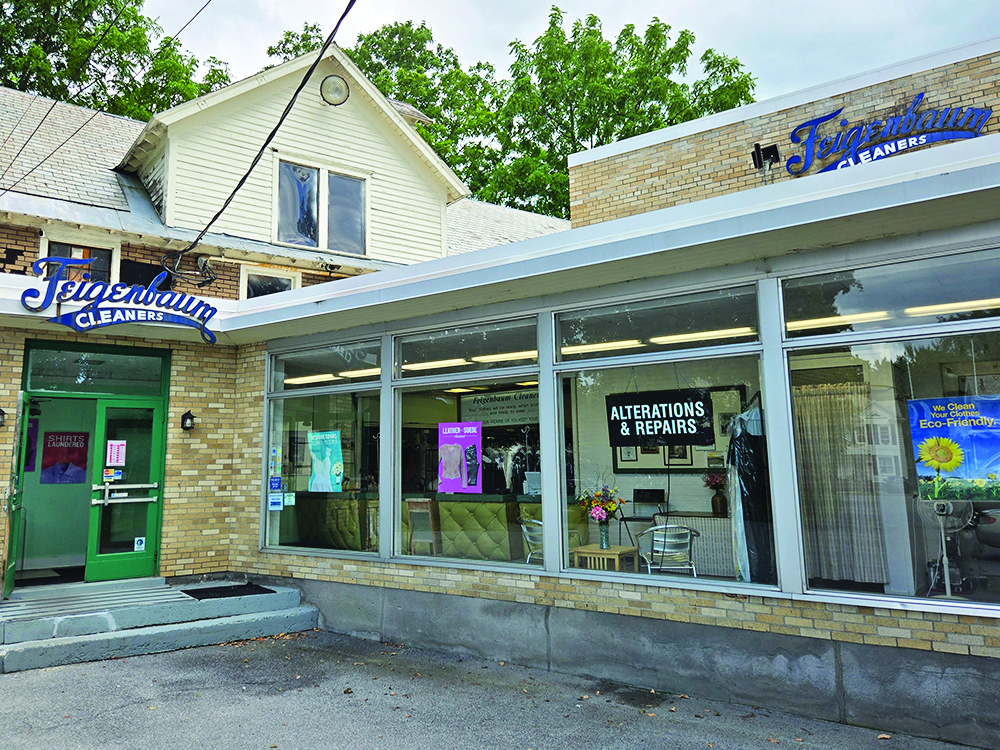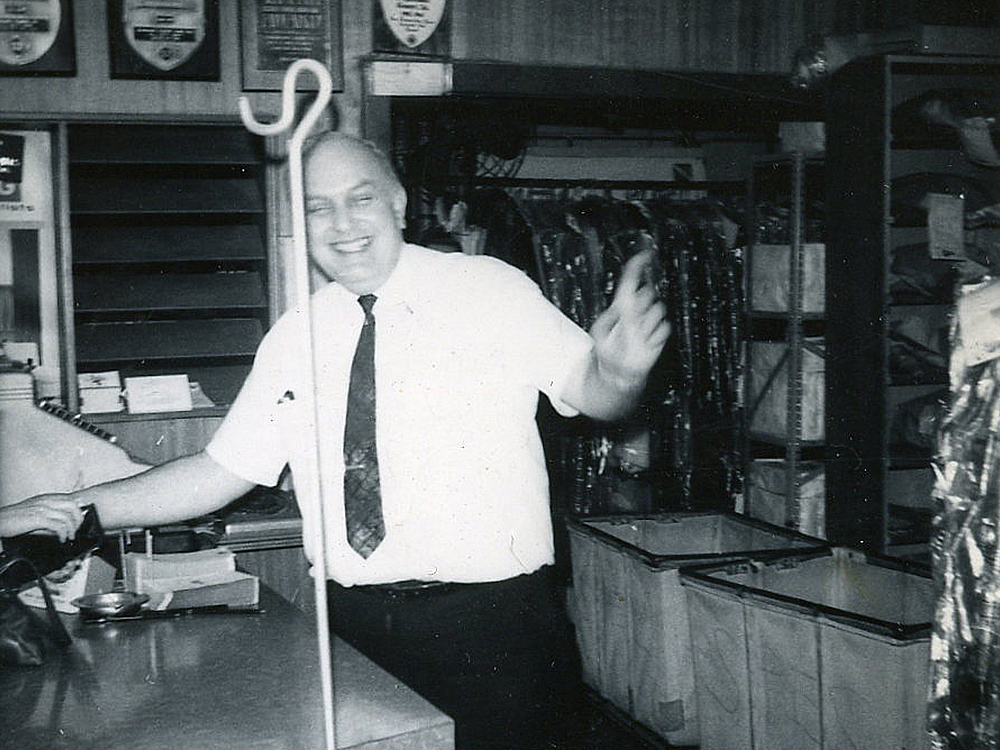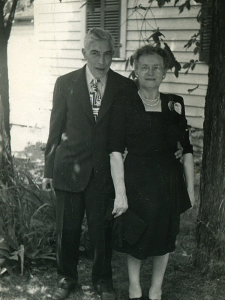
By Paul Post
One of Glens Falls’ oldest family-run firms has been sold to new operators who pledge to continue the same high-quality service customers have enjoyed for the past 108 years.
Schenectady-based Best Cleaners recently purchased Feigenbaum Cleaners, founded by Eastern European immigrant Herman Feigenbaum in 1917. Terms of the deal were not disclosed.
Plans call for rebranding Feigenbaum sites at Wilton Square and Quaker Plaza in Queensbury, but closing its store and cleaning production facility on Bay Street in Glens Falls.
Best Cleaners, owned by Tim McCann, already has production facilities at two of its five locations in Schenectady, Loudonville, Delmar, Glenville and Latham.
Spokesperson Hannah Brand said McCann was wanted to grow northward and Feigenbaum’s exemplified the same values his company is well-known for.
“We want to expand our delivery routes up there,” she said. “Until now, we didn’t have any storefronts close enough where it seemed possible.”

Feigenbaum Cleaners was sold by Todd Feigenbaum, a third-generation owner, and his wife, Julie.
“I turn 70 this month,” he said. “My wife and I decided it was a good time to retire. The folks who acquired the business do a really good job. I’ve known them for many years. Tim is a third-generation dry cleaner just like me. Our goal has always been to do right by the customer. I don’t think they’ll see much difference going forward.”
The Feigenbaum family legacy is somewhat of a classic American dream-come-true story.
Todd’s grandfather, Herman, was a tailor who learned the trade in London after moving there from Eastern Europe.
“He arrived in the U.S. in 1902 worked in sweatshops on the Lower East Side of New York,” Todd said. “He heard about a tailor’s shop in Whitehall so he put his family on a train. They had three kids at the time and my grandmother was pregnant with my father.”
“They stopped in Glens Falls to spend the night,” he said. “In the morning my aunt, who was 2 at the time, didn’t want to get back on the train and my grandmother wasn’t feeling well. So my grandfather turned to his friend who had come with him and said, ‘Is there room for another tailor in this town?’”
He said, ‘Yes,’ so they stayed.
Herman quickly discovered that there was no dry-cleaning business north of Albany. “Having worked in the garment industry of New York, he said, ‘I can do that, too.’ That was the beginning of the business,” Todd said.
The modern process of dry cleaning, which uses solvents instead of water, was developed in the early 19th century by Jean-Baptiste Jolly in France, and in 1821 was patented in the U.S. by Thomas Jennings, an African-American entrepreneur and civil rights activist.
“It really took off in the late 19th century and early 20th century,” Todd said.

Herman Feigenbaum had a tailor shop on South Street, Glens Falls, and ran the cleaning business out of his home at 3 Fulton Street, where people came to pick up their clothing.
Todd’s father, Louis, and uncle, Bill, took over the business after coming home from the service in World War II. In 1947, they purchased a building near the Fulton Street house and moved there.
In the late 19th century it had housed a livery where people could buy a horse for their horse and carriage. But it went out of business after 1910 when cars became more popular and was then home to a silk factory with a rare loom that used a process known as the Glens Falls weave to make silk and satin material for ladies’ undergarments.
The silk factory closed during the Great Depression.
Todd’s father eventually ran Feigenbaum’s by himself and Todd and his wife took over in 1986. Next February would have marked their 40th anniversary in business.
“We were doing great until COVID hit,” Todd said “When people stopped going to work we saw 80 percent of our business disappear in four days. We even closed our stores for a couple months. At least 25 percent of dry cleaners in the U.S. disappeared because of COVID.”
More recently, sales had finally been restored to pre-COVID levels.
Many customers are professional and business people.
“Even people who buy non-wrinkle shirts bring them in to be pressed because there’s nothing like a professionally pressed shirt,” Todd said. “We could do a much better job with the equipment we have than you can at home with an iron.”
In addition to dry cleaning, Best Cleaners “offers wash-and-fold subscriptions for people who want us to do their everyday laundry,” Brand said. “We have plans for singles, couples and families. We also do in-house leather cleaning.”
Alterations and tailoring are offered, too.
Best Cleaners, which had 60 employees prior to acquiring Feigenbaum’s, is one of three firms McCann owns. The others are CRDN, which does water and smoke restoration (20 employees); and Amazon Logistics, a delivery service (100 employees).
Brand said the Feigenbaum’s Bay Street store will close this month. Front end employees are expected to be relocated to one of the company’s other locations.
But about 12 cleaning production workers lost their jobs because Best Cleaners has such facilities elsewhere. Todd said some employees have already found new jobs as many local employers are hiring.
He still owns the Bay Street property. There are no immediate plans for its sale, he said.
